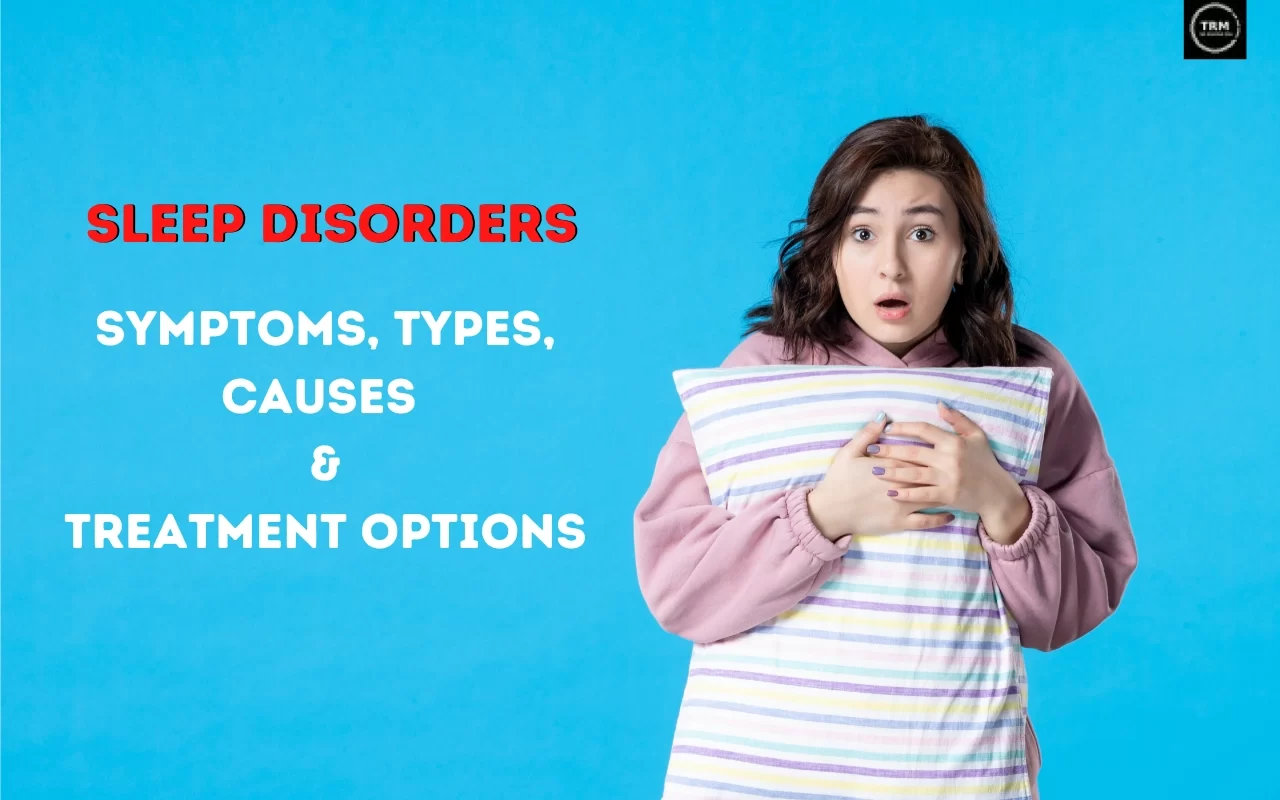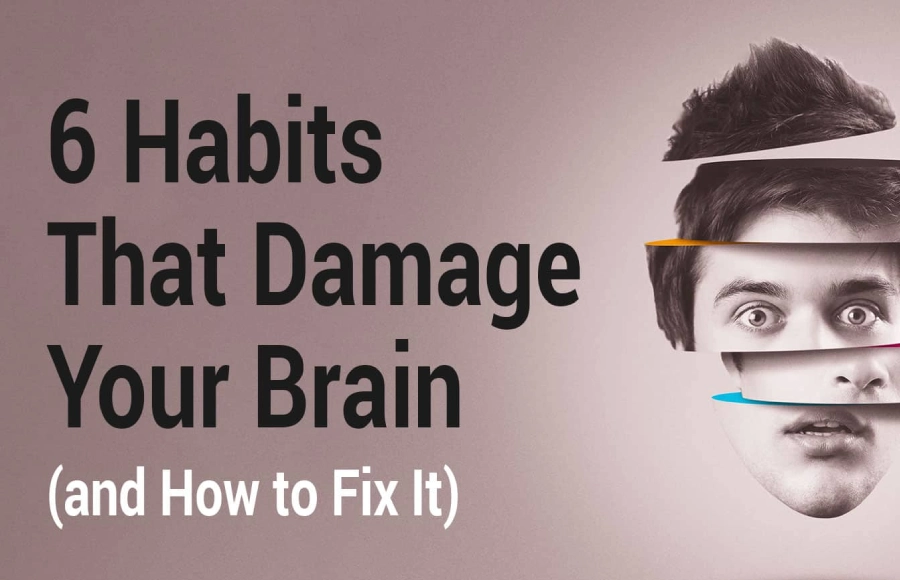Do you think that without taking a sound sleep you can work efficiently the next day? No, You can’t as sleep plays an important role in the proper functioning of our body, and not taking care of the sleep schedule and pattern will ultimately cause you Sleep disorders.
To prevent health issues such as sleep disorders and get a better lifestyle routine you may have to acknowledge the necessity of sleep and the consequences of Sleep disorders.
Sleep Disorder
Sleep disorder is a condition that affects sleep duration and pattern. Your sleeping schedule will be disturbed if you have abnormal activities in your life before or after sleeping—the results of a disturbed sleeping life cause sleep disorders.
Why is Sleep necessary?
The process of sleeping serves essential functions of homeostasis and vitality, such as thermoregulation and energy conservation. It is a state of being unconscious while the brain and other organs are still active and performing their function. If sleep is disturbed it may affect your mental and physical health for example feeling dizzy all day long.
Types of Sleep Disorders
There are more than 100 types of sleep disorders but few are commonly seen in patients with sleep disorders. Sleep disorders come in a wide variety, and they can be studied into main categories consisting of Insomnia, Narcolepsy, Sleep Apnea, Parasomnias, Nightmares, and Shift work disorder.
1. Insomnia
Insomnia is a condition in which a person faces issues with falling asleep or staying asleep. Visible problems such as weight gain, sleepiness, fatigue, and problems with mood are noticeable.
Insomnia is further divided into two categories: Chronic insomnia and Acute Insomnia. If insomnia symptoms continue for three days per week for three months consecutively it is referred to as chronic insomnia or long-term insomnia.
Acute insomnia or short-term insomnia doesn’t remain for a long time but affects the lifestyle of a person. Factors like environmental, temporary circadian rhythm misalignments, illness, and extreme temperature may cause acute insomnia for a certain period.
2. Narcolepsy
Narcolepsy is a sleep disorder controlled and regulated by the nervous system. Primary symptoms are sleep attacks during the daytime because the brain is unable to regulate sleep and wakefulness. The exact cause leading to Narcolepsy is not known and it often occurs between the age group of 15 to 25.
3. Sleep Apnea
Sleep Apnea is a common disorder felt during sleeping when a person stops breathing for several seconds. This symptom reduces the quality of sleep. It is not diagnosed easily because sleepers aren’t aware of their reductions in breath during sleeping.
Sleep Apnea has two types: Obstructive and Central
Obstructive sleep apnea is caused when the soft tissue in the throat is blocked leading to snoring, daytime sleepiness, fatigue, gasping for air, and trouble concentrating.
Central Apnea is not caused by any blockage of tissues but happens due to improper functioning of the brain where it fails to signal the body to breathe. It is called Central Apnea as it is related to the central nervous system. A person with CSA disorder gets recurrent awakenings during sleep time and gasping for air as well.
4. Parasomnia
Parasomnia involves unusual and undesired activity during sleep time. A person makes abnormal movements, talks, and expresses emotions such as crying or unusual behavior.
Parasomnia is divided into two main categories:
- non-rapid eye movement (Non-REM) sleep
- rapid eye movement (REM) sleep
Non-rapid eye movement includes sleepwalking, night terrors, waking up confused, and unusual sexual behavior in bed while sleeping.
Rapid eye movement is having REM behavior disorder and nightmares.
6. Nightmares
Talking about nightmares, people experience terror while they are sleeping; it usually affects youngsters more frequently, however, it can also affect adults. Night terrors, on the other hand, happen during deep sleep and typically cause the sleeper to wake up sweating and heavily breathing.
Nightmares, on the other hand, typically occur in the final period of sleep and are usually prompted by everyday events.
7. Work-Shift disorder
Any person who is suffering from work shift disorder has a misaligned circadian rhythm as they work in night shifts or in rotating shifts as well. Any work hour starting from 7 pm – 6 am falls under the category of the night shift. Workers may experience dizziness, and yawning while doing jobs.
An estimated 16% of workers in the U.S. have night shifts or rotating shifts. Of these workers, one in five experience Work-shift disorder.
Causes of Sleep Disorder
However, each sleep disorder is caused by different reasons. Although the causes might differ, the result of sleep disorders is that your sleep is disturbed, and you feel yawning all day long during job hours. Some commonly seen factors which cause sleep disorders are mentioned below.
- Diseases related to the heart, lungs, nervous system, etc.
- Mental illnesses such as anxiety and depression
- Consuming medicines
- Inherited genetics
There are some other reasons which affect your sleep as well
- Overconsumption of alcohol and caffeine.
- Irregular work schedules such as working night shifts or rotating shifts.
- Ageing with time. Elderly people find difficulty in sleeping.
Symptoms of Sleep Disorder
- You may feel difficulty falling or remaining asleep.
- Experiencing dizziness and fatigue in the daytime.
- An imbalance in the circadian schedule helps your mind and body to perform a 24-hour cycle
- Having less concentration and low performance at work.
- Unusual Irritation and anxiety.
- Having difficulty managing emotions and memory.
Treatment Options
Sleep disorders treatment at home
According to several studies, those who get eight hours of sleep each night are less likely to acquire dementia, diabetes, hypertension, Parkinson’s disease, heart disease, or hypertension. These conditions are to be treated medically but you can start the basic treatment care in the comfort of your home with the below-mentioned tips.
- Decide a regular sleep schedule for sleeping and waking up.
- Do not sleep more than 45 minutes during the day if you frequently take naps.
- Do not smoke and limit your alcohol intake for three to four hours before bed.
- 6 hours before bed, stay away from caffeine-related products. This includes chocolate, coffee, tea, and a variety of soft beverages.
- 4 hours before going to bed, stay away from heavy, spicy, or sweet foods. Before bed, a small snack is acceptable.
- Regular exercise is important, just not right before bed.
- Use comfortable bedding.
- Set the temperature for a relaxing night’s sleep, and keep the air flowing.
- Use dim lights before sleeping and turn off all distracting noise.
- Do not use the bed as a dining table or working seat, Use it for sleeping only.
Treatment for sleep disorders with medical care
Only 5% of those who experience sleep disorders seek medical attention, which suggests a serious decline in their physical and mental health and work performance.
You must seek attention for a physician if the type of sleep disorder causes drastic disturbance in your life. A physician will take several tests and diagnose the actual sleep disorder type you are having. He may ask about your medicinal history, lifestyle routine, symptoms, and illness you might have.
The physician may recommend some tests and procedures to help you diagnose the type of sleep problem you are having. It may include
- Blood test: Blood tests are generally used to detect the factor which is causing interrupted sleep such as thyroid problems.
- Sleep log: It is basically a diary that records your sleep duration, daytime sleep degree, Bedtime, and wake time schedule.
- Sleep disorder questionnaire: This questionnaire helps to understand the comprehensive history of health and sleep patterns of the patient.
- Polysomnogram: Polysomnogram is used to diagnose and evaluate the type of sleep disorder a patient is having. During a polysomnogram referred to as a sleep study, patients are connected to sensors applied on the head or chest that monitor their sleep, body movements, oxygen levels, and breathing patterns.
Based on the patient’s sleep disorder diagnosis, the healthcare provider will suggest treatment for a speedy recovery. He/She might recommend the below-mentioned treatment such as Oral appliances, Medications, Cognitive behavioral therapy for insomnia (CBT-I), Continuous positive airway pressure (CPAP), or Surgery, or may ask you to follow sleep hygiene tips.
Sleep is an essential process for the growth and recovery of your body and mental health. Do not compromise your sleep as it will lead you to serious health problems. Seek medical care and regulate your sleep schedule for a better lifestyle and ongoing days.
We have covered the query related to your search. I hope that you have gathered some useful information from this article.
Conclusion
The aforementioned points lead us to the conclusion that sleep disorders are a true nightmare for the quality of life of those who suffer from them as well as their partners and families.
Therefore, getting timely treatment will not only provide you with more peaceful nights but also more productive days. Additionally, it will enhance daily performance, mood, and relationships with family and friends. Visit a doctor.



